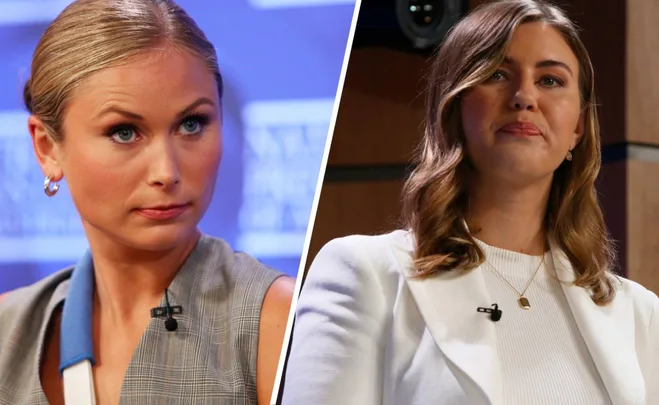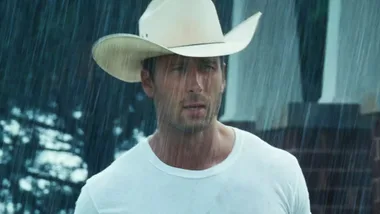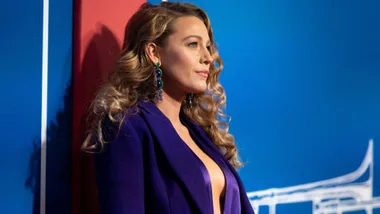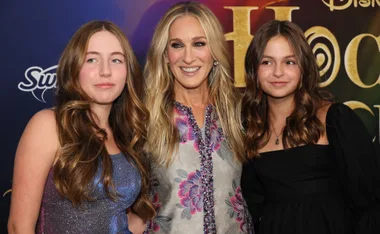Trigger Warning: this article deals with sexual assault and may be triggering to some readers.
Grace Tame and Brittany Higgins have delivered two of the most powerful speeches to ever be heard at the National Press Club, holding no punches as they delivered a scathing takedown of Scott Morrison’s government and its handling of sexual violence and abuse.
Delivered back to back, Tame and Higgins—who have become fierce friends and allies through their activism—spoke to different failures of the Morrison government and public more broadly.
“The parliament of Australia is safe and secure, except if you are a woman,” Higgins said, drawing on her own experiences of alleged rape within parliament house and the msimanagement by the government afterwards.
Tame, meanwhile, revealed she had been asked not to say “anything damning” about the Prime Minister during her Australian of the Year duties, while also taking aim at members of the public who claim she seduced her abuser.
“The police found a trophy file of students both in uniform and topless on his computer, all of whom either came from broken homes like me or lived in at the boarding house away from their families, and among the items that were assumed to be mine at that were given back to me after the investigation was an envelope full of my own hair,” she told a silent room.
“But, sure, I was the predator. It was all my fault.”
Their speeches came one day after Morrison made a formal apology to victims of sexual harassment, assault and bullying in parliament. In his speech, he apologised directly to Higgins, despite the fact that she received a last minute invite to sit in for the historic moment.
“I am sorry. We are sorry. I am sorry to Ms Higgins for the terrible things that took place here. And the place that should have been a place for safety and contribution, turned out to be a nightmare.”
His words, Brittany and Grace reiterated today, were not enough.
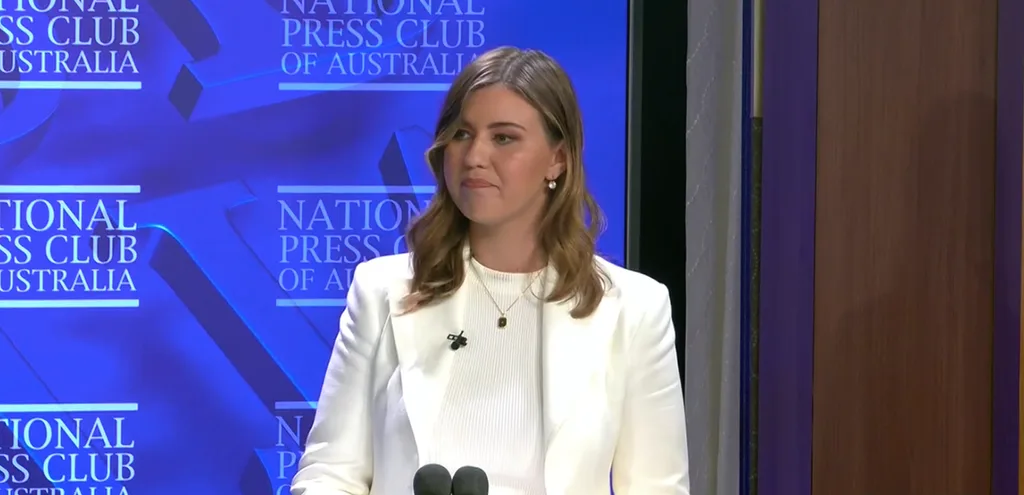
Brittany Higgins’ speech
Higgins began her speech: “The parliament of Australia is safe, is secure. Unless you’re a woman.”
“Sexual harassment and bullying is rife in the corridors of power,” she said, adding that while she earnestly thanks the Prime Minister for his statement of acknowledgement and apology offered to victims of abuse in the national parliament, more needs to be done.
“It was encouraging, and an important sentiment, but I am cognisant that, at this point in time, they are still only words. Actions are what matter. And what will be the true test of whether the government is committed to creating systemic change— task forces are great. Codes of conduct are important. But only if it’s paired with institutional change.”
She also described how last year’s March 4 Justice was a “national moment of reckoning”, an “irresistible force”.
“But I stand here today fearful that this moment of transformative potential, the bravery of all those women who spoke up and stood up and said “Enough is enough” is in danger of being minimised to a flare-up, a blip on the radar, a month-long wonder in the national conversation.
“Or worse, just a political perception problem neutralised and turned into a net positive.”
She also discussed the “passive” language pertaining to sexual violence in the national conversation.
“We have this passive, anonymous language vaguely talking about “wrongs done” as if sexual violence falls out of the sky. As if it is perpetrated by no-one. As if it is inflicted on no-one.
“For a start, recognising there’s a problem is 50 years short of what’s required. And the women and girls of Australia deserve so much better than an improvement in the way that we publicly discuss the dangers that they face at home and in their daily lives.”
“I may have been naive but, up until 2021, I truly didn’t realise that gender was still a defining feature of my humanity. I thought of myself as a university student. A government employee. An Australian. But I have now been forced to come to terms with the fact that my gender is still a key feature of my personhood to some people,” she added.
Higgins said any change in the conversation will start with the Prime Minister
“But his words wouldn’t matter if his actions had measured up. Then, or since.”
She then discussed the National Action Plan to stop violence against women and children, the draft of which was initially only presented to the public for feedback for two weeks—a timeframe that was met with disgust from advocates for survivors
“The plan laments wistfully that more needs to be done, but if it is more of the same compounded by a refusal to examine the past failures, let alone examine them, then this plan will not be worth the glossy paper it will eventually be printed on and Australian women and children will suffer through another decade of violence and abuse while politicians and policy-makers wring their hands about the fact that we need to turn things around in 2040.”
She concluded her speech: “I know change is possible, and as long as there are people like Grace Tame and Rosie Batty and the amazing team at the Global Institute For Women’s Leadership, I know that change is coming.
“It is up to us to keep those in power up to account. To take up the challenge, we each have a responsibility to one another and have a role to play in making things better for the next generation of women.
As she finished, she received a standing ovation from everyone in the room.
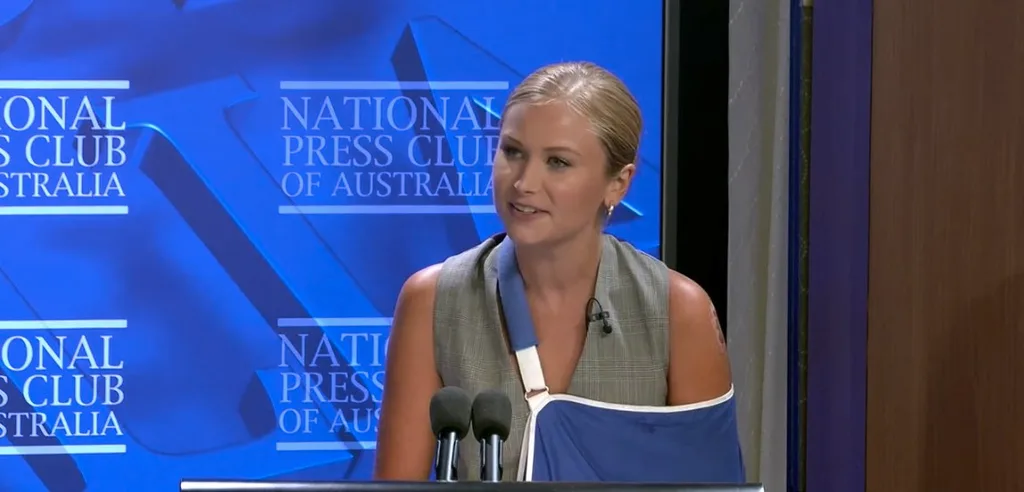
Grace Tame’s speech
Grace began her speech discussing her harrowing experience of being sexually assaulted as a child, something to this day, she continues to be doubted for.
“Just the other day, someone online called me a horrible, horrible person who aggressively pursued her teacher and then blamed everyone else.”
The former Australian of the Year was visibly emotional as she detailed who her teacher was and his history of abuse.
“I have spoken with three others he took advantage of before my time, and countless other women and men who bore witness to his predatory behaviour during his 18 year tenure who, now wishing they hadn’t, turned a blind eye, who, now wishing they hadn’t, smiled through it.”
She added: “The police found a trophy file of students both in uniform and topless on his computer, all of whom either came from broken homes like me or lived in at the boarding house away from their families, and among the items that were assumed to be mine at that were given back to me after the investigation was an envelope full of my own hair.”
“But, sure, I was the predator. It was all my fault,” she told the silent room.
“If I can still be shamed into believing that today, it is no wonder that even amid this national reckoning, with all the empowerment it has generated for survivors, many still remain hesitant to publicly come forward with their stories.”
Then, Tame turned to the Prime Minister, describing an alleged threat from a senior member of a “government funded organisation” she received several months after she became Australian Of The Year.
“[They asked] for my word that I would not say anything damning about the Prime Minister on the evening of the next Australian of the Year Awards. ‘You are an influential person. He will have a fear,’ they said. A fear? What kind of fear? I asked myself. A fear for our nation’s most vulnerable? A fear for the future of our plan? And then I heard the words, ‘with an election coming soon…’”.
Tame also referenced to Morrion’s apology yesterday, saying that the government needs to take full responsibility: “Abuse culture will continue to thrive inside parliament, setting a corrupt standard for the rest of the nation. It rots from the top. And by ‘full responsibility’, I mean proactive, preventative measures – not these reactive, band-aid, electioneering stunts like acknowledging past harm at the last minute. If you don’t take a strong stance to condemn abuse, you enable it.”
“I am here because I made a conscious decision to stand up to evil, and I have been calling out injustice ever since… So, why put my reputation on the line? Because when we act with integrity, the tide rises with us.”
Cheers from the crowd rung out as Tame added: “When we act with integrity, we set a more esteemed bar for those who take our place. In any event, I would rather go down as a disappointment to an institution than sell out as a pandering political puppet to the corrupt forces that coercively control it.”
She then requested three key asks from the government.
“The first is for a government that takes the issue of abuse in all its forms seriously.
“The second is for the implementation of adequate funding for prevention education to stop these things before they even start.
“The third is for national, consistent, structural change,” she added, explaining that the language around child sexual abuse should be consistent and reflect the trauma associated with it.
Referencing the ACT’s Family Violence Legislation Amendment Bill which was introduced to the Legislative Assembly in November: “One of the key amendments in the bill, which we called for on 12 November, is to change the name of the offence ‘sexual relationship with a child’ to ‘persistent sexual abuse of a child’.”
“Now, whilst I commend the ACT on overhauling these laws, we need to ensure that every state and territory adopts the best-practice model of not only the charge itself, but the complete wording of the legislation.”
She finished her speech by saying that structural change is key here.
“Without structural change, we will continue to be at the mercy of systems that override them.”
If you are experiencing sexual abuse or other unwanted behaviour, please contact Full Stop Australia.
